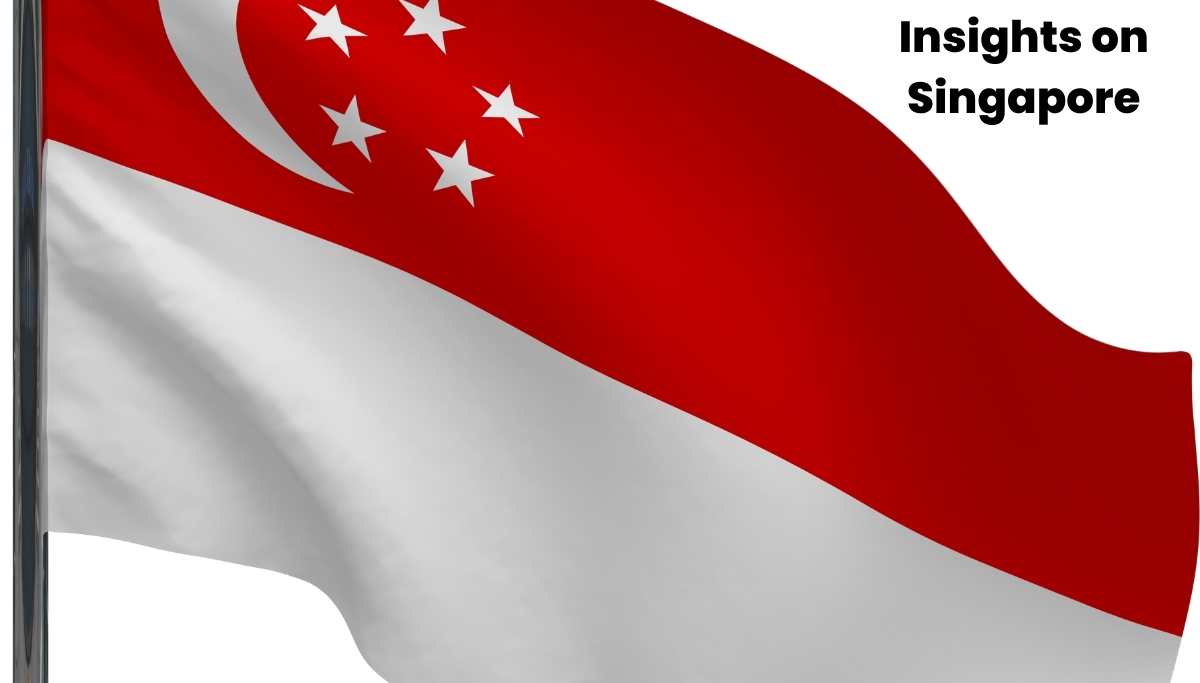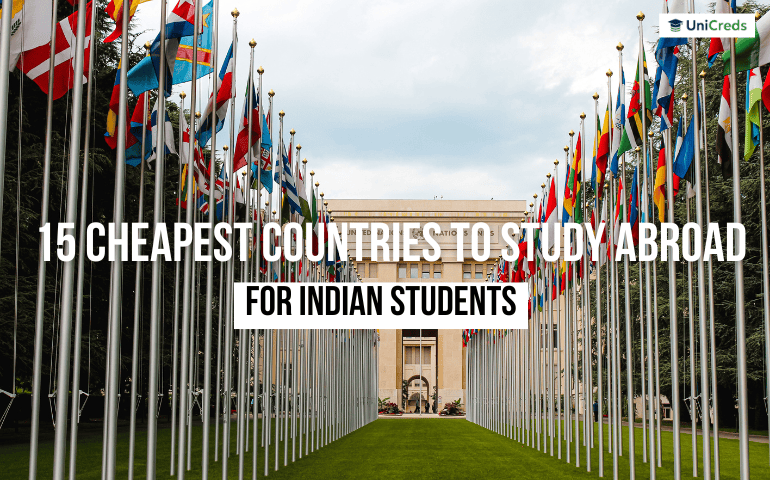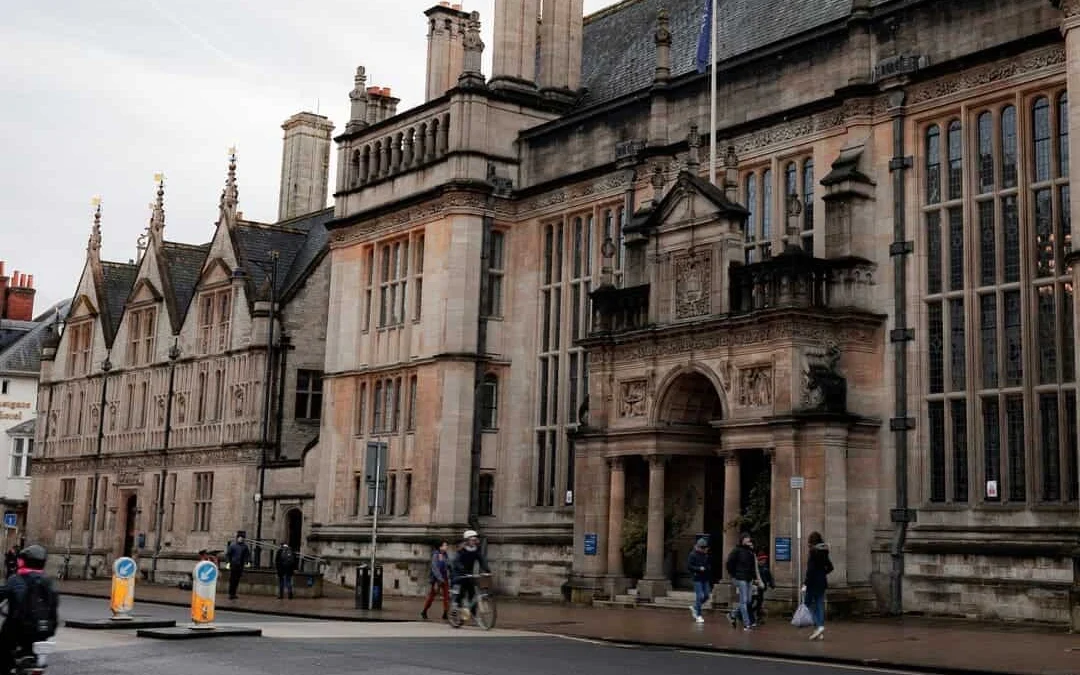Table of Contents
Singapore is known for being a developed country with leaning skyscrapers and diverse communities notwithstanding its young status. As Southeast Asia’s most advanced city for over a century, the island is also home to various cultures living within it. There is a very distinct way of life with people speaking many languages and practising different cultures. Such a wide range of cultures makes the country very accepting of others turning it into the perfect study destination for students from all parts of the world. Let’s get started with the exclusive Singapore study abroad guide.

1. Study Programs in Singapore
Singapore is considered to have one of the best education systems in the world. Getting an education here is a ticket to a brighter future. By focusing on the importance of education, Singapore is currently a rising star in international higher education. This gives us a chance to earn an internationally recognized degree at affordable costs. Also, thanks to the facilities and educational environment, universities, and colleges in Singapore, that are among the best in the world.
Singapore is an emerging hub of higher education with its world-renowned universities and colleges which are well-presented in major university ranking systems. Not only are the universities here rank high due to their proven track record, but Singapore itself is on top of student satisfaction and global reputation.
Public Universities
Funded by the government, and open to local and international students. Although receives government funding, these universities are autonomous, meaning they can strategize, innovate, and differentiate themselves, as they pursue excellence in education, research, and service.
Private Universities
Although privately funded, these institutions receive government funding for students to pursue subsidized part-time or full-time degrees.
Polytechnic Institutions
Offers practice-oriented studies at the diploma level. Key providers of continuing education and post-employment professional development services.
Institute of Technical Education (ITE)
The ITEs Offer technical-oriented studies and develop the technical knowledge and skills of the students. Students will have the option to choose between full or part-time educational or traineeship courses.
Foreign Universities
Offers undergraduate and postgraduate degrees offered by foreign universities with branch campuses in Singapore.
Arts Schools
Specialized schools that offer specialist creative education to enhance your artistic ability. Offer a diploma as well as degree courses.
Save time on the finest offers on secure education loans by filling the form on this blog!
2. Costs of living in Singapore
- Cost of Studying
Among the most favoured places for international students for studying abroad, Singapore would probably be your study destination goal too. But one of the main concerns students have on their minds while deciding to study abroad is the tuition fees and the expenditure they would have to bear over the cost of their studies.
A Bachelor’s degree would cost you around $22,000 – $ 44,000/year.
A Master’s degree would cost you around $22,000-$65,000/year.
- Cost of Accommodation
Another major part of the Singapore Study abroad guide – Singapore is the Accommodation. The cost of housing in Singapore depends on factors such as the property’s proximity to the city, the relative age of the property, availability of recreational facilities such as pool, gym, etc., and the quality of furnishings that come with the accommodation. You should take your time to decide where you want to live in Singapore and make a decision only after careful consideration of the average rental cost as well as your personal preferences.
Renting a 3-bedroom private apartment in the CBD area will cost you around $5,000-$7,000 while those in the outskirts can be rented for around $4,000 per month.
You can rent a room in a private apartment in prime districts such as East Coast, River Valley, and Chinatown for around $800 -$1800/month.
- Cost of variable expenses
Cost Of Expenses Except For Tuition Fees & Accommodation Would Include:
A movie ticket for around $10 and a copy of the local newspaper will cost you about $1. Concert prices start from $12 and go up to $150. The national library annual membership fee for permanent residents is free with only a one-time registration fee of around $10 while the annual membership fee for foreigners is around $42. The average cost of a 640ml bottle of beer is around $5.

3. Requirements To Study Abroad In Singapore
Depending on the course the students want to apply for, they need to submit certified copies of the required transcripts/mark sheets/certificates of the minimum qualification that is asked.
The students need to get the documents translated into the English language from the authority of a student’s home country.
Students should also get the marks converted according to the grading system that is followed in Singapore. University authorities can be contacted for the same.
Scorecards of IELTS, TOEFL, and GMAT exams are also to be submitted to the university authorities. Although the minimum score varies according to the university, it’s advised that students should aim to score above the minimum scores asked.
For students seeking admission in an MBA course, it’s mandatory to have a minimum of 2-3 years of work experience. A detailed CV along with a letter of recommendation, from the professors with their contact information mentioned on the same is to be submitted to the university.
For students seeking admission in a doctoral program, letters of recommendations and a statement of purpose mentioning the reasons as to why the student wants to pursue the particular field of study in a doctoral degree should be submitted.
4. Loans For Study Abroad In Singapore
Here comes the most important part of the Study abroad guide – Singapore. The increasing cost of education across the world has led several students to seek help from lenders such as Public and Private Banks.
Every year, hundreds of thousands of students apply to seek Education Loan to finance higher education either in the home country or abroad. Banks lend money to those students in the form of unsecured and secured Education Loan. Notwithstanding, an Education Loan application does not inevitably lead to sanctioning of the loan by the banks. You need to be careful with every little information regarding the loans. Let’s take a look at the criteria that must be fulfilled to be eligible for education loans :
- You should be between the age of 18 to 35 and must have a co-applicant which can be a spouse, sibling, parent, etc.
- Education loans are available for a span of up to 7 years for all professional, post-graduate, and graduate programs like engineering, management, medicine, and many more.
- A loan can incorporate miscellaneous fees like that of the library, lab, travelling, books, study tours, etc in addition to the tuition fees.
- Repayment can be done with the help of electronic monthly installments commonly known as EMIs or post-dated checks.
- The banks which are considered to be the best for providing education loans offer a moratorium period of about 6 months after the course is completed. During that period no payments towards the principal amount are supposed to be made. Though, the Interest payments will continue.
- Banks do not need any security for education loans of up to 4 lakhs. Though, third party guarantees or collateral are needed if you are opting for loans of larger amounts.
5. Obtaining the Visa – Study Abroad In Singapore
Once you are accepted into your university of choice, you need to apply for a student visa. It is advised to do so right after you receive your admit from the University as visa approval is a long process
You will need these documents in the process of applying for a student visa
- Passport details
- Your university’s address proof
- A passport-sized photo
- University acceptance letter
- Diploma of the last school you graduated from.
- Recent bank statement to show you will have enough to support yourself in Singapore.
You’ll be called for the Visa interview on a given date. Please make sure to reach the venue prepared and before time.
6. Transportation in Singapore Study Abroad Journey
The best way to get around Singapore is via its Mass Rapid Transit (MRT) subway system. This underground network has lines that stretch across the entire city. However, once you’re in the desired neighbourhood, walking is your best option. MRT also operates bus routes that can get you anywhere on the island. People in Singapore avoid car rental, as parking is expensive and traffic can be painful. Most travellers arrive through Singapore Changi Airport, which is connected to the city by the MRT system.
The MRT subway system is extensive, clean, efficient, inexpensive, and easy to understand. Maps are available at every station. Fares are based on the distance you travel and usually range from $0.74 to $1.85. Instead of purchasing single fare tickets, consider purchasing an EZ-Link rechargeable card for $9 to save some extra money and avoid ticket lines if you’re in Singapore for an extended period.
Buses cross the entire country and can take you everywhere you need to go. Fares are based on distance travelled, time of day, as well as traveller type i.e. adult, children, and senior citizen fares. Based on all those factors, you could end up spending the same amount that you would for a metro ride.

7. Entertainment & Lifestyle – Singapore Study Abroad
If you’re a new student looking for fun things to do in Singapore, our Study abroad guide – Singapore presents some interesting ideas for you:
Have an exciting VR experience
Head to Sandbox VR to enjoy a team-based virtual reality game for the whole group. This is an immersive VR experience where you’ll embark on thrilling missions in a wide variety of locations, from a haunted mansion and pirate ship to a futuristic city in 2088. Lasting an hour, the game starts with 15 minutes of training and setup, followed by 30 minutes in VR and a final 15 minutes of debriefing where you’ll be able to view cool video highlights from the experience.
Give kayak fishing a shot
Kayak fishing is a great outdoor activity that you can do right here in Singapore. It combines the fun of paddling a kayak with the thrill and skill of trying to catch fish. You’ll be glad to know that fish caught during the tours are released back into the sea. Each tour has a maximum of four people, with one dedicated guide. All equipment is provided, so just bring a hat and sunblock to protect yourself from the rays.
Stroll through Gardens by the Bay
The gigantic waterfront garden has a cool, futuristic feel and plenty of exotic plants, making it a wonderful spot for a leisurely walk. Must-see bits include the Flower Dome, which focuses on Mediterranean flora, and a foggy tropical wonderland with an indoor waterfall.
We hope you enjoyed reading our Singapore Study Abroad Guide and found it informative and helpful!
If you wish to read more of such informative blogs then make sure you check out our other informative blogs linked below!










0 Comments